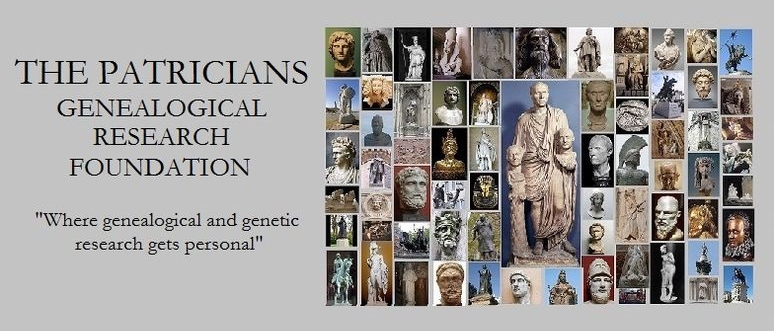










After his exile from Carthage around 195 BC, Hannibal Barca (247 – 183 BC) served Antiochus as a military advisor until he committed suicide to avoid Roman captivity. In preparation for an invasion of Greece, Antiochus direly needed Hannibal’s advice, although he seldom took it in practice.
Just before the invasion, he assembled his army for Hannibal’s review. When he asked whether his military force would be enough for the Romans, Hannibal replied, “I think all this will be enough, yes, quite enough, for the Romans, even though they are most avaricious.” The Romans later resoundingly defeated the Seleucid army at the Battle of Thermopylae (191 BC) and the Battle of Magnesia (190 BC). Antiochus never again returned to Greece after his defeat, although he wouldn’t have considered it a tragedy, mainly because he and his lineage were regarded as a pariah by the staid Hellenistic Greek rulers well before his forebears’ advent in Macedonia as kings of the region (perhaps more salient commentary to follow at a later date).
After the death of Alexander the Great of Macedonia (356 – 323 BC), a power struggle to succeed him ensued amongst his generals. The Partition of Triparadisus (321 BC), which was a power-sharing agreement, divided the Macedonia Empire between them. Seleucus I Nicator (358 – 281 BC), primogenitor and eponym of the Seleucid dynasty, was awarded Babylonia,
During the Wars of the Diadochi (322 – 281 BC), Seleucus conquered Persia and Media territories. Before his assassination, he ruled Babylonia as well as all of the eastern part of Alexander’s empire. His contribution to the territorial expansion Macedonian Empire was the last of any great magnitude. Thereafter, the kingdom went into a gradual decline in scope as conquered Asia-Minor sovereignties, such as Armenian and Parthian kingdoms, began to reassert their erstwhile dominance in their respect regions of geo-political influence, eventually chipping away at the Macedonian Greek rulership hegemony to the extent that by the time of the first century BC, the Seleucid kingdom was reduced to pretty much the size of present-day Syria. Concomitantly, to the west of its borders, Rome advanced with impunity, as Antiochus III first experienced first-hand, to add to the duress of maintaining the empire, which ultimately led to its downfall. Nevertheless, their demise shouldn’t be regarded as a disgrace for the regnal lineage, but instead a lesson of history that most, if not all of its magnitude eventually succumb to, in one form or another.
The Seleucid Empire ruled in Asia-Minor, primarily in Syria during the latter part of its existence, continuously for eleven generations until 63 BC when it had been reduced to a vassal state of the Roman Empire. With the death of Philip II Philoromaeus, Pompey decided to put an end to the dynasty and wholly absorb Syria as a province of Rome.
The Roman defeat of the Seleucid Empire during the Roman-Seleucid War (192–188 BC) effectively ended the Hellenistic Greek hegemony as rulers of Asia Minor. Antiochus’ descendants were effectively driven out of Asia-Minor by the Roman Empire. They settled in Scandinavia during the latter half of the 2nd century AD.
They emerged into Scandinavian Europe as adherents of the Norse pagan religion that was first introduced to the region by Sigge “Odin” Fridulfsson of Asgard (50 BC – 30 AD) 1st King of Scandinavia. Several Seleucid rulers styled themselves as Freyr before their arrival. Lnor Freyr, King of Turkey (born c. 120) was the first to do so.
Yngvi Freyr (born c. 175) was the first agnatic descendant of the Seleucid lineage to be born and die in Scandinavia. He was the primogenitor of the Yngling royal dynasty. Both Hroðgar Halfdansson (526 – 620) King of Denmark and Ragnar “Loðbrók” Halfdansson (c. 765 – 845) King of Denmark & Sweden were his agnatic descendants.
Historians often confuse Antiochus III with his son Antiochus IV, the infamous persecutor of Jews. In contradiction of this belief, his father purportedly treated Jews quite well, even resettling Babylonian Jews into parts of his realm. He lowered the tax burden on the Jewish community so they could live “according to the law of their forefathers”.
Since the founding of the Amphictyonic League (ca. 9th century BC) during the Archaic period of Greek history, Thermopylae has been the site of numerous major military battles (last, 1941 Battle of Thermopylae). Perhaps the most famous is the 3-day long battle waged between the vastly outnumbered Greeks and Xerxes the Great’s Persian army that was fought in 480 BC. Although they heroically lost, the Greeks eventually won the Greco-Persian War. Their victory marked the beginning of Western civilization and culture in world history. Pericles (495 – 429 BC) would later mold the Athenian city-state into the first democratic society.
Antiochus married Laodice III of Pontus. She was the maternal 2nd great-granddaughter of Alexander the Great. The couple’s third daughter, Cleopatra I Syra, married Pharaoh Ptolemy V Epiphanes. His religious decree issued at Memphis, Egypt in 196 BC is inscribed on the Rosetta Stone.
Ptolemy Soter I, Alexander’s nephew and aide-de-camp, was the founder of the Egyptian Ptolemaic Kingdom and Ptolemaic Dynasty. He is probably best known for sponsoring the great Alexandrian mathematician Euclid.
Antiochus was the maternal 2nd great-grandson of Alexander the Great of Macedonia (356 – 323 BC) and agnatic cousin of Cleopatra VII, Queen of the Ptolemaic Kingdom of Egypt (69 – 30 BC). They were all agnatic descendants of Alexander I of Macedon (498 – 454 BC) and Aegyptus, the legendary first king of ancient Egypt and descendant of Cronos the Titan.
Related ancestral blog articles:
Collins (Kollson) Agnatic Norse Lineage (650 – present)
Xerxes I Achaemenid (510 – 465 BC) 4th King of Kings of Persia
Solomon ben David, King of Israel & Israel (1033 – 975 BCE)
Historically Noted Military Commanders
Antiochus III “Basileus Megas” Seleucid
Birth 242 BC in Syrian Arab Republic
Death 4 Jun 187 BC in Susa, Syrian Arab Republic
ANCESTRAL RELATIONSHIP/LINEAGES/ANCESTRY.COM CITATION
69th great grandfather SCYLFINGS-YNGLING-DUNKELD-PLANTAGENET-HOWARD-WOOD-COLLINS
3rd cousin 73x removed ARGEAD-MANOGAN-COELING-DOL-FITZALAN-MOWBRAY-HOWARD-WOOD-COLLINS
24th cousin 66x removed ANATOLIA-ACHAEMENID-JUDAH-DARDANUS-ASGARD-WESSEX-HOWARD-WOOD-COLLINS
SOURCES
Seleucid Empire Wiki
Greeks or Hellenes Wiki
Danish royal family
BIBLIOGRAPHY
Antiochus
Seleucid Coins: A Comprehensive Catalogue, Part II: Seleucus IV through Antiochus XIII – Catalogue
Lucian, VI: How to Write History. The Dipsads. Saturnalia. Herodotus or Aetion. Zeuxis or Antiochus. A Slip of the Tongue in Greeting. Apology for the “Salaried Posts in…
Antiochus And The Late Academy
Antiochus III and the Cities of Western Asia Minor
The Cambridge History of Iran, Volume 3, Part 1: The Seleucid, Parthian and Sasanid Periods
Thermopylae: The Battle That Changed the World
The Patricians, A Genealogical Study – Ebook Editions (Epub, PDF & Kindle) US$5.95


The Patricians, A Genealogical Study – Ebook Editions (Epub, PDF & Kindle) US$7.95


29 replies on “Antiochus III “Basileus Megas” Seleucid, 5th Emperor of Seleucid Greek Empire (223 – 187 BC)”
[…] Antiochus III Seleucid, Emperor of Seleucid Greek Empire (223 – 187 BC) 3GGF […]
LikeLike
[…] Antiochus III Seleucid, Emperor of Seleucid Greek Empire (223 – 187 BC) 3GGF […]
LikeLike
[…] Antiochus III Seleucid, Emperor of Seleucid Greek Empire (223 – 187 BC) 3GGF […]
LikeLike
[…] Antiochus III Seleucid, Emperor of Seleucid Greek Empire (223 – 187 BC) 3GGF […]
LikeLike
[…] Antiochus III Seleucid, Emperor of Seleucid Greek Empire (223 – 187 BC) 3GGF […]
LikeLike
[…] Antiochus III Seleucid, Emperor of Seleucid Greek Empire (223 – 187 BC) 3GGF […]
LikeLike
[…] Antiochus III Seleucid, Emperor of Seleucid Greek Empire (223 – 187 BC) 3GGF […]
LikeLike
[…] Antiochus III Seleucid, Emperor of Seleucid Greek Empire (223 – 187 BC) 3GGF […]
LikeLike
[…] Antiochus III Seleucid, Emperor of Seleucid Greek Empire (223 – 187 BC) 3GGF […]
LikeLike
[…] Antiochus III Seleucid, Emperor of Seleucid Greek Empire (223 – 187 BC) 3GGF […]
LikeLike
[…] Antiochus III Seleucid, Emperor of Seleucid Greek Empire (223 – 187 BC) 3GGF […]
LikeLike
[…] Antiochus III Seleucid, Emperor of Seleucid Greek Empire (223 – 187 BC) 3GGF agnatic […]
LikeLike
[…] Antiochus III Seleucid, Emperor of Seleucid Greek Empire (223 – 187 BC) 3GGF […]
LikeLike
[…] Antiochus III Seleucid, Emperor of Seleucid Greek Empire (223 – 187 BC) […]
LikeLike
[…] Antiochus III Seleucid, Emperor of Seleucid Greek Empire (223 – 187 BC) […]
LikeLike
[…] Antiochus III Seleucid, Emperor of Seleucid Greek Empire (223 – 187 BC) […]
LikeLike
[…] Antiochus III Seleucid, Emperor of Seleucid Greek Empire (223 – 187 BC) […]
LikeLike
[…] Kingdom (305 – 30 BC) of Egypt. Alexander the Great of Macedonia (356 – 323 BC) and Antiochus III Seleucid, Emperor of Seleucid Greek Empire (223 – 187 BC) were their agnatic cousins. They and Pericles Acamantis (495 – 429 BC) were all descendants […]
LikeLike
[…] Antiochus III Seleucid, Emperor of Seleucid Greek Empire (223 – 187 BC) […]
LikeLike
[…] Antiochus III Seleucid, Emperor of Seleucid Greek Empire (223 – 187 BC) […]
LikeLike
[…] Antiochus III Seleucid, Emperor of Seleucid Greek Empire (223 – 187 BC) […]
LikeLike
[…] Antiochus III Seleucid, Emperor of Seleucid Greek Empire (223 – 187 BC) […]
LikeLike
[…] Antiochus III Seleucid, Emperor of Seleucid Greek Empire (223 – 187 BC) […]
LikeLike
[…] Antiochus III Seleucid, Emperor of Seleucid Greek Empire (223 – 187 BC) […]
LikeLike
[…] Antiochus III Seleucid, Emperor of Seleucid Greek Empire (223 – 187 BC) […]
LikeLike
[…] Antiochus III Seleucid, Emperor of Seleucid Greek Empire (223 – 187 BC) […]
LikeLike
[…] Antiochus III “Basileus Megas” Seleucid – 6th Emperor of Seleucid Greek Empire (22… […]
LikeLike
[…] Antiochus III “Basileus Megas” Seleucid – 6th Emperor of Seleucid Greek Empire (22… […]
LikeLike
[…] Antiochus III “Basileus Megas” Seleucid – 6th Emperor of Seleucid Greek Empire (22… […]
LikeLike